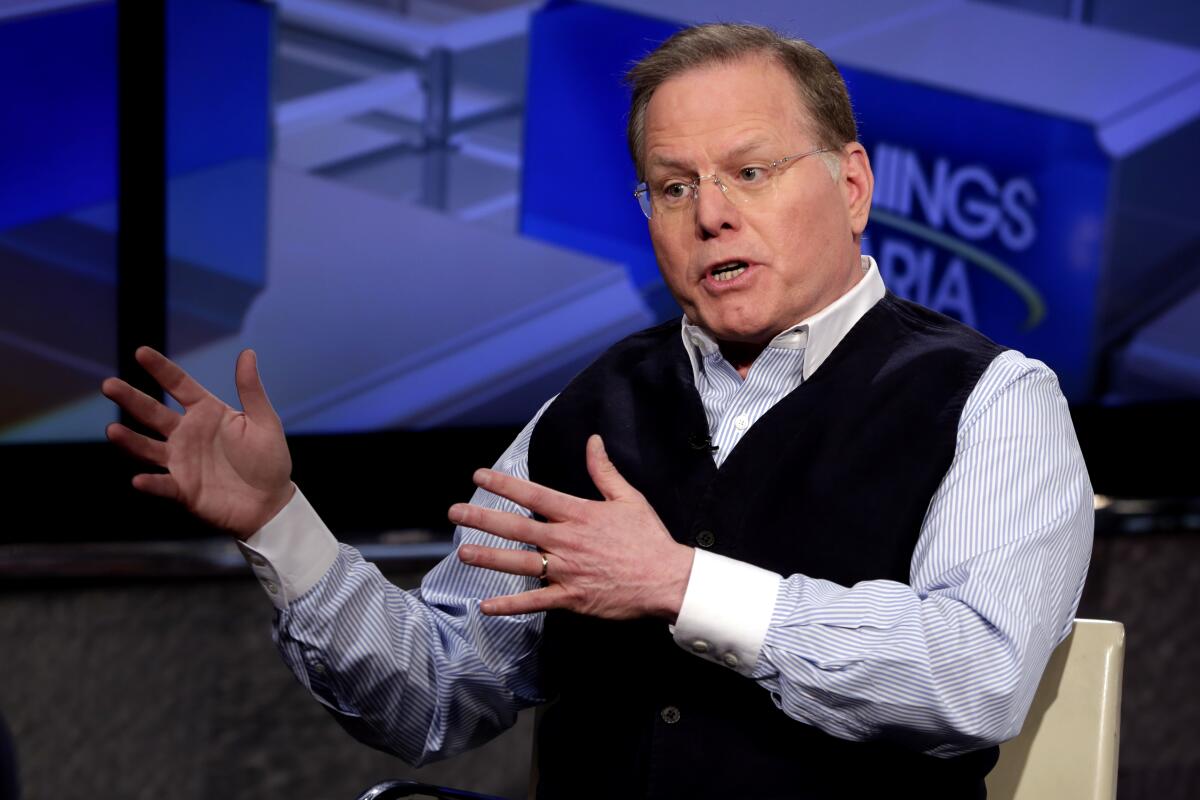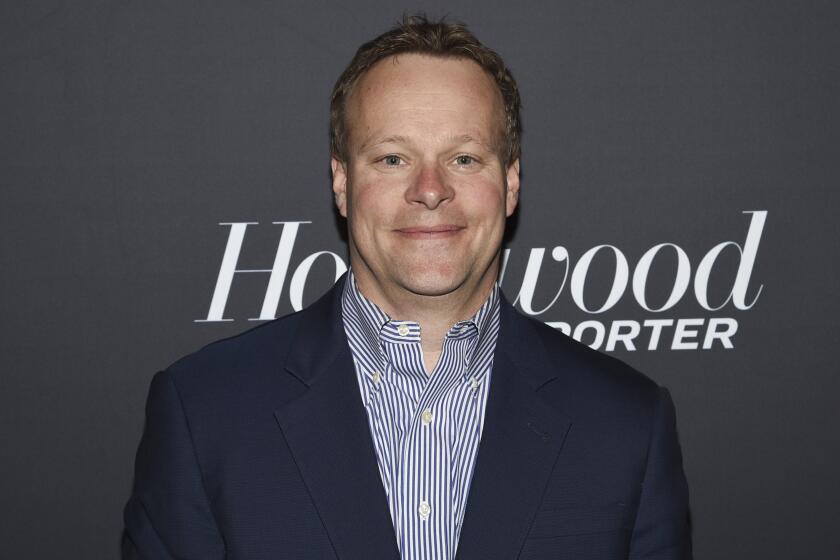David Zaslav defends Warner Bros. Discovery cuts: ‘We did not get rid of any show that was helping us’

- Share via
Warner Bros. Discovery Chief Executive David Zaslav addressed the significant cuts made at the company during the last six months, framing them as part of a fundamental “rethinking and reimagining” of how the media giant works as the entertainment industry endures a period of dramatic transformation.
Since the April merger of WarnerMedia and Discovery Inc., the combined firm has shed hundreds of jobs from units including Warner Bros. Television, HBO and HBO Max and Turner networks. CNN head Chris Licht recently told staff to brace for budget cuts, and the news network has pulled back on commissioning original films and series. The company has mothballed projects including “Batgirl” and pulled shows including “Sesame Street” from HBO Max, causing anxiety among directors, writers and producers.
But speaking bluntly to analysts on Thursday, Zaslav made no apologies for such cuts.
“Let me be clear,” Zaslav said. “We did not get rid of any show that was helping us.”
Zaslav signaled to investors that more major changes are yet to come. He said the company has increased its synergy goal to $3.5 billion in savings, an increase of 17% from the $3 billion he’d previously promised Wall Street.
“This is more than just a dollar tally of what we’ve saved on an expense line,” Zaslav said during the call with analysts. “It is more than just a number. We are fundamentally rethinking and reimagining how this organization is structured. And we are empowering our business unit leadership to transform their organizations with an owners mindset and a view on quality and accountability.”
Showrunners and writers are trying to make sense of the fast-changing streaming landscape. PLUS: Activist investor Daniel Loeb is at it again at Disney.
The cuts come as Warner Bros. Discovery is trying to reduce its $50-billion debt load after the merger and is facing a challenging economic environment with inflation and a possible recession that has advertisers spooked, on top of long-term challenges such as the decline of traditional television viewing and uncertainty at the box office.
The company is adapting by creating a combined streaming service from HBO Max and Discovery+, which it now expects to launch in the spring, rather than summer as previously forecast. It’s also working on a free, advertising-supported service, similar to Fox Corp.’s Tubi.
At the same time, Warner Bros. Discovery is trying to beef up its franchises such as DC. Zaslav has made no secret of his belief that DC can do better, noting that the studio hasn’t released a stand-alone Superman movie in years. He also wants more done with the Harry Potter property.
Filmmaker James Gunn and producer Peter Safran were recently tapped to lead DC Studios to create a more unified strategy across film, television and animation.
“They have a powerful vision and blueprint that will drive a more unified creative approach that will enable us to realize the full value one of the world’s most iconic franchises, their hardest work right now,” Zaslav said.
The merger has proven to be difficult and costly. Warner Bros. Discovery reported a loss of $2.31 billion in the third quarter, largely due to costs related to Discovery’s acquisition and restructuring of WarnerMedia assets. Revenue dropped 11% to $9.82 billion compared with the same quarter a year ago.
Zaslav put a positive spin on the challenges.
“This is an opportunity to look inside each one of our businesses and really determine what’s working, what’s not working,” Zaslav said. “Is it structured properly? Does it have the right assets, people and resources to be effective and the best of class in the environment we face today? None of this is easy, and nothing happens overnight.”
In a memo sent Tuesday, Licht said CNN is looking at ways to reduce costs. It’s not clear whether the cuts will include layoffs.
Warner Bros. Discovery posted combined streaming subscribers of 94.9 million at the end of the third quarter, including HBO Max and Discovery+, an increase of 2.8 million from three months prior, thanks to shows including HBO’s “House of the Dragon.” But despite acclaimed content, Warner Bros. Discovery’s streaming business lags Netflix (223 million) and Disney+ (152 million) .
While streaming is a key business, Zaslav has promised to buck the strategy of growing subscription counts at all cost. He’s declared a focus on the bottom line, through a renewed willingness to license shows to other companies, for example, and an outright rejection of straight-to-streaming movies.
“Let’s face it,” he said. “The strategy to collapse all windows, starve linear [television] and theatrical [box office] and spend money with abandon, while making a fraction in return, all in the service of growing sub numbers, has ultimately proven, in our view, to be deeply flawed.”
Zaslav didn’t mince words when it came to what he thinks works and doesn’t work in streaming, especially in film. Analysts have interpreted his moves as a rejection of the strategy employed by AT&T, WarnerMedia’s previous owner.
“The movies that we launched in the theater do significantly better, and launching a two-hour or an hour and 40 minute movie direct to streaming has done almost nothing for HBO Max in terms of viewership, retention or love of the service,” he said.
Company shares closed at $11.97, down 6%, or 71 cents. The stock fell 4% in after-hours trading.
More to Read
Inside the business of entertainment
The Wide Shot brings you news, analysis and insights on everything from streaming wars to production — and what it all means for the future.
You may occasionally receive promotional content from the Los Angeles Times.













